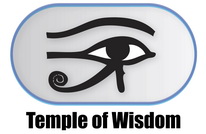
Quantum entanglement is a phenomenon that occurs when two or more quantum particles become entangled in such a way that their quantum states become correlated. When two particles are entangled, their properties become interdependent and any change in the state of one particle can instantaneously affect the state of the other particle, regardless of the distance between them. This property of entanglement is one of the most intriguing features of quantum mechanics, and it has been the subject of much research in recent years.
However, one of the major challenges in studying entangled systems is the problem of decoherence. Decoherence refers to the process by which a quantum system loses its coherence and becomes entangled with its environment. This can happen due to various factors, such as interaction with other particles or radiation, which can cause the quantum state of the system to collapse.
Decoherence can have a profound effect on entangled systems, as it can cause the entanglement to break down and the particles to become disentangled. This can lead to the loss of the quantum advantage that entanglement provides, and can make it difficult to use entangled particles for quantum information processing and other applications.
There are several ways in which decoherence can affect entangled systems. One of the most significant is through the process of entanglement swapping. Entanglement swapping is a process by which two entangled particles can become entangled with each other, even if they have never interacted directly. This process relies on the entanglement between two other particles, which act as a mediator or quantum channel.
However, if the mediator particles become decoherent, the entanglement between the two target particles can be lost. This can happen if the mediator particles interact with their environment or if they are subjected to other types of interference. If the entanglement between the mediator particles is lost, then the entanglement between the target particles will also be lost, and entanglement swapping will fail.
Another way in which decoherence can affect entangled systems is through the process of quantum teleportation. Quantum teleportation is a process by which the quantum state of one particle can be transferred to another particle, even if they are separated by a large distance. This process relies on the entanglement between two particles, one of which is located at the sender’s location and the other at the receiver’s location.
However, if either of the entangled particles becomes decoherent, then the quantum state of the sender’s particle will be lost, and the teleportation process will fail. This is because the quantum state of the sender’s particle is encoded in the entangled state of the two particles, and if this state is lost, then the information cannot be transferred to the receiver’s particle.
Decoherence can also affect entangled systems through the process of quantum computation. Quantum computation is a process by which quantum information can be processed and manipulated using quantum logic gates. This process relies on the use of entangled particles, which can be used to perform certain computations more efficiently than classical computers.
However, if the entangled particles become decoherent, then the quantum information that is being processed can become corrupted, leading to errors in the computation. This can make it difficult to use entangled particles for quantum computation, and can limit the potential applications of quantum computing.
There are several strategies that can be used to mitigate the effects of decoherence on entangled systems. One approach is to use quantum error correction codes, which are designed to protect against errors that can occur due to decoherence. These codes involve encoding the quantum information in such a way that errors can be detected and corrected, even in the presence of decoherence.
Another approach is to use quantum systems that are less susceptible to decoherence. For example, some types of particles, such as trapped ions or superconducting qubits, are known to be more resilient to decoherence than others. By using these types of particles, it may be possible to create entangled systems that are less susceptible to decoherence.
In addition, it is important to minimize the interaction between the entangled particles and their environment. This can be done by isolating the particles in a controlled environment, such as a vacuum, and using techniques such as cooling to reduce the amount of thermal noise that can lead to decoherence.
Finally, it is important to develop new techniques for creating and manipulating entangled systems that are more robust against decoherence. This may involve developing new types of entanglement that are less susceptible to decoherence, or finding ways to protect the entangled state of a system from external interference.
In conclusion, decoherence can have a profound effect on entangled systems, causing the entanglement to break down and the particles to become disentangled. This can lead to the loss of the quantum advantage that entanglement provides, and can make it difficult to use entangled particles for quantum information processing and other applications. However, there are several strategies that can be used to mitigate the effects of decoherence, including the use of quantum error correction codes, the use of quantum systems that are less susceptible to decoherence, and minimizing the interaction between the entangled particles and their environment. By developing these strategies and finding new ways to create and manipulate entangled systems, it may be possible to harness the power of quantum entanglement for a wide range of practical applications.







